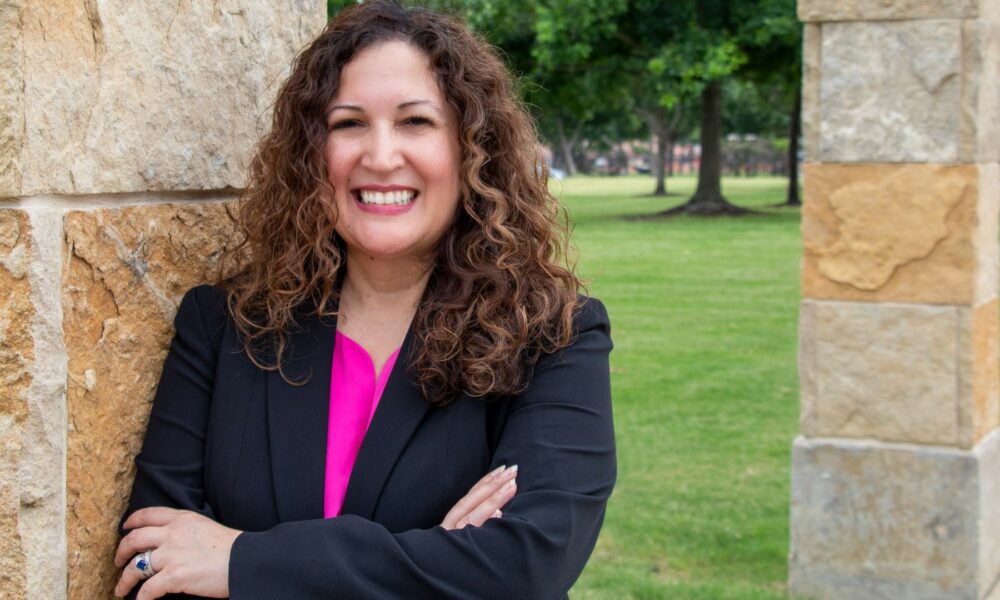

Today we’d like to introduce you to Dr. Leti Cavazos.
Hi Dr. Cavazos, thanks for joining us today. We’d love for you to start by introducing yourself.
Of course, thank you so much for having me! My name is Dr. Leti Cavazos, founder, and CEO of the Cannenta Center for Healing and Empowerment.
When I became pregnant as a teenager and was stuck in an abusive relationship, it took some time to find my bearings, but I knew that I wanted to help others, so I decided to pursue a degree in social work.
While I was hesitant to work within the domestic violence space, I started serving clients with mental illnesses and homelessness, but I learned that many also experienced domestic violence and/or trauma.
It became my passion to build programs that were transformative and trauma-focused to serve the community’s most vulnerable citizens with dignity and respect. After many years of creating programs for shelters and nonprofit institutions, I made the bold move – especially during the pandemic – to open a business to serve those who were perhaps hit hardest by the pandemic.
I founded the Cannenta Center for Healing and Empowerment, which opened its doors to the DFW area in April 2021. It provides comprehensive, therapeutic counseling for adolescents, individuals, couples, and families. In addition to counseling, our highly trained bilingual staff offers culturally competent professional training to help other mental health workers provide services to underserved communities.
The Cannenta Center has a twofold mission: to serve the vastly underserved Hispanic population of DFW and empower employees to dictate their own worth by instituting an employee-driven pay scale as well as professional opportunities to become subject matter experts in their clinical area of interest.
After moving from San Antonio, I was surprised to see the lack of services in the DFW area for the Hispanic population. The more I went out to talk to people, the more I realized it was a missing niche. Because the need was so strong, organizations around the area began sending clients to the Cannenta Center.
Before the Cannenta Center’s first anniversary, we completed a memorandum of understanding (MoU) with a local foundation to financially support members of the Hispanic population in need of counseling. This is a huge step because there is already a stigma about mental health within the community and now the financial barrier has been removed.
The Cannenta Center is also more than a mental health facility. We provide professional training to enhance clinical development through research trends, and trainings and seminars on how to work with a Spanish-speaking population, which attracts practitioners worldwide.
Beyond our services, we continue to give back, and our employees volunteer as mentors for high school students and upcoming bilingual clinicians.
While the growth of the Cannenta Center has been tremendous, I admit it wasn’t without its challenges. I am not naturally an extrovert, so networking has been an area of growth, but my team, friends, and family have been significant support.
My heart is overflowing with thankfulness for the support of others and the impact Cannenta Center is already making on the community.
Can you talk to us a bit about the challenges and lessons you’ve learned along the way? Looking back would you say it’s been easy or smooth in retrospect?
I’ve had to step out of my comfort zone since starting the company. As I mentioned before, I’m not naturally an extrovert, so having support from other professionals willing to coach and encourage me has been invaluable. Together, we know there is a need for mental health services, but there are barriers. We are constantly examining these obstacles and finding ways to tear them down as a team.
Thanks for sharing that. So, maybe next you can tell us a bit more about your work?
Upon moving from San Antonio to the DFW area, I began working at the city’s largest domestic violence center. In San Antonio, we had roughly six months to help stabilize participants. In the DFW shelter, we only had 45 days. It was a challenge, but we viewed services through a trauma lens to help set clients up for success.
Using my experience as a program-builder, I helped lay the foundation for the first men’s domestic violence shelter in Texas. My doctoral research was titled “Assessing the Characteristics of Male Victims of Domestic Violence Experiencing Homelessness Secondary to Abuse.” I saw there was a hidden population of victims that were underserved, and I wanted to help make an impact.
I went on to build more programs for other organizations, including a long-term residential home for women and children in crisis. I designed the program to help ensure we were doing our best to help them not only overcome trauma, but gain employment, and learn the skills needed to increase their earning potential and long-term sustainability.
My heart is to not only serve others, but to also use my knowledge and skills to help impact future generations, including social workers and clinicians who are passionate about serving underserved populations. If anyone chooses to work with me, it is my goal to help empower them for success.
We’re always looking for the lessons that can be learned in any situation, including tragic ones like the Covid-19 crisis. Are there any lessons you’ve learned that you can share?
You are the only person who can dictate your value and worth. Do not let others dictate it. Also, if you have a dream, do not wait until the “right time.” Take a leap of faith. You will be surprised by the many people that will rally around you to help ensure you succeed.
Contact Info:
- Email: info@cannentacenter.com
- Website: CannentaCenter.com
- Instagram: instagram.com/cannentacenter/
- Facebook: facebook.com/CannentaCenter





Image Credits:
Hector Cavazos










